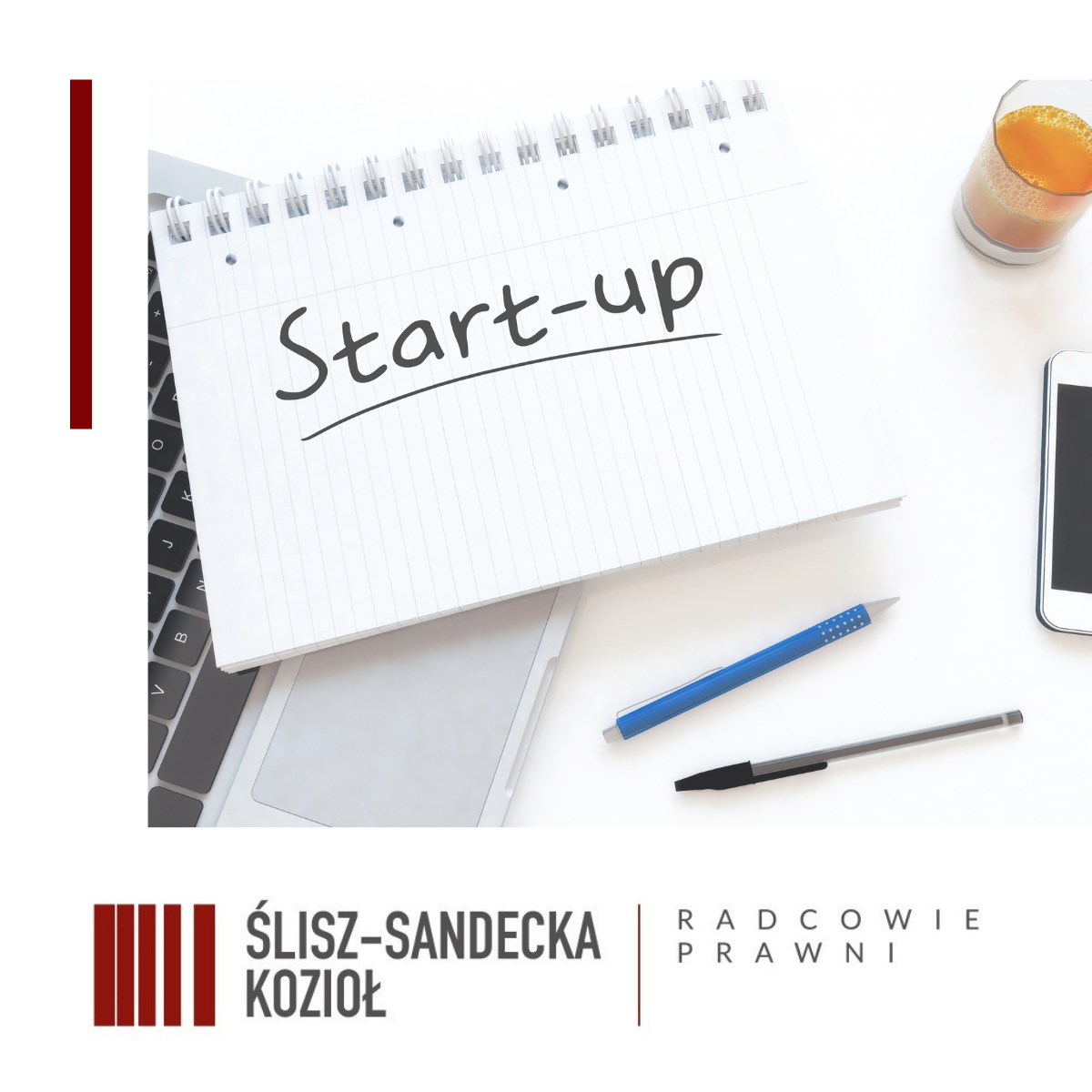Company formation through S24 or classically?
There comes a point when an entrepreneur with a startup idea faces the choice of the legal form of the new business adapted to the needs of the projected business. The question that most often arises at this stage is which form of company will be the most optimal and, consequently, how should the company be formed and registered?
An entrepreneur will come across two ways regarding the possibility of forming a company:
- a simple model, with the help of the S24 System run by the Ministry of Justice (the so-called Company established “via the Internet”),
- traditional model – where the company’s contract is formed in the form of a notarial deed, during notarial actions.
In such a case, another question arises – “which solution is better and more optimal to implement my idea?” Both systems have advantages and disadvantages and emphasize the different needs of a newly established start-up.
First of all, it should be pointed out that only a general partnership, limited partnership, limited liability company and simple joint-stock company can be registered using the S24 System at this point. Using the traditional form, on the other hand, gives the opportunity to establish a company in any form prescribed by law, which indicates in this aspect the advantage of the traditional model over the online one. Considering that the most common form of business for start-ups is a simple joint-stock company and a limited liability company, the difference between the two models in the above regard does not overly affect their evaluation.
Time and cost savings
In favor of establishing a company using the Internet is the fact that the process of establishing it in this way is much simpler and cheaper than the traditional model. The developers tried to create the system in such a way that it is intuitive and easy to use. Thus, at least in theory, an entrepreneur can set up a company on his own, without the help of a professional lawyer, thanks to the standard documents found in S24, which need only to be completed by himself. In doing so, it is necessary to create a user account in the system and to have a qualified signature or a Trusted Profile. Subsequently, the submission of the prepared documents also takes place through the S24 System.
On the other hand, in the case of concluding an agreement in the form of a notarial deed, there is a need to prepare a comprehensive draft agreement regulating corporate governance and safeguarding the interests of the shareholder, with the help of a legal advisor, lawyer or notary, which, by its very nature, distorts the ease and simplicity of such a solution. In addition, a visit to a notary is needed to draw up and certify the relevant documents. The next step is to submit the documents to the KRS system via the Internet.
Related to the above point are also undeniably the costs that the entrepreneur must incur in order to conclude the deed establishing the company and then register it in the National Register of Entrepreneurs. In the case of the S24 System, the entrepreneur can save the cost of the notary’s fee and pay a lower court fee (PLN 250 instead of the standard PLN 500). In the case of the traditional form, additional costs will have to be incurred.
Thus, establishing a company through the S24 System seems to be a more optimal solution due to time and cost savings for the future start-up. However, it is necessary to bear in mind certain limitations that the legislator has adopted for the simpler form of incorporation – the entrepreneur has fewer opportunities to modify the provisions of the contract, and the possibility to introduce authorial innovations into the content of the contract is impossible. In the case of the notarized form, the entrepreneur has a great deal of freedom in deciding what the content of the provisions of the future agreement will be, so he can better regulate the relations prevailing between the entrepreneur and other partners or investors.
As an aside, it should be pointed out that in the case of incorporation of a capital company using the S24 System, it is possible to contribute share capital only by cash contributions, which is of momentous importance for start-ups whose originators would prefer to make an in-kind contribution.
The above also applies to a simple joint-stock company. Why am I focusing on it? Well, in the indicated company there is, in principle, the possibility of in-kind contribution of labor by the shareholder, which is one of its main advantages. However, due to the restriction of the possibility of making contributions in cash in a company incorporated with the help of the S24 System, based on the literal wording of the regulations, the advantage of a simple joint-stock company disappears – because only cash contributions can be made to it.
When there is an investor in prospect
When describing the company formation model, one cannot help but point out that it is possible in practice to carry out a phased company constitution, which is more and more often used in the establishment of new start-ups, particularly when the entrepreneur plans to sign an Investment Agreement with a prospective investor.
In the case where the entrepreneur already has investment plans established with the investor and both parties intend to complete the investment process, the entrepreneur must establish the company – which justifies the use of a faster model for its formation. However, the investor reserves certain rights in order to secure his influence in the company in which he invests – hence it will be necessary to use a model that allows for the adoption of a contract that allows for more intricate provisions beyond the available contractual templates. In addition, it is easy to imagine a case in which the investor plans to ultimately make an in-kind contribution to the company, making it impossible to use the S24 System to incorporate the company.
A possible solution for such an entrepreneur in this case would be to first use the S24 System so that the company can be formed as soon as possible and be a party to the investment agreement, and then to carry out an amendment to the consolidated text of the articles of association in the form of a notarial deed to take into account the investor’s requirements and powers, as well as the investor’s ability to make in-kind contributions to the company.
Here, however, an important problem arises in determining at what point the in-kind contribution to the company by the originators may occur, bearing in mind that amendments to the articles of association occur with their registration in the KRS. As a rule, the registry courts, interpreting the regulations in accordance with their spirit, allow for the possibility of making an in-kind contribution to the company before the registration of the amendment to the articles of association in the form of a notarial deed, i.e. de facto on the basis of the articles of association originally established through the S24 System. However, the wording of the regulations does not explicitly imply such a possibility – and it happens that the Courts, applying a literal interpretation, do not allow in-kind contributions to the company before the registration of changes to the contract in the KRS – which causes delays in the entire investment process to the detriment of both the investor and the originators, who, when starting a business, have to expect additional costs, a breach of liquidity and a delay in the start of the project.
In view of such different approaches of the courts to the same issue, it would be appropriate to make a de lege ferenda proposal to stabilize the interpretation of the courts in the above regard. It should be noted that the S24 System is primarily intended to facilitate the start of economic participation by new ventures, including start-ups that have already agreed with an investor. In view of the numerous investment processes occurring in the economic turnover, the proposed optimal postulate remains to unify the legislation in such a way as to conditionally allow the validity of the amendment of the in-kind contribution from the moment the agreement is amended, rather than from the moment the registration is made. This would greatly facilitate the conduct of investment processes in situations where originators have an in-kind contribution, which may be more necessary for the project for technical reasons than a cash contribution. This would certainly facilitate future investment processes and release additional energy in the development process of new start-ups.
The analysis of the two forms of incorporation shows that there is no clear answer to the question of which one is better. It can be judged that it is a choice between time and cost savings, and more free regulation of provisions in the company’s articles of incorporation. Thus, depending on the needs of the entrepreneur, each of the above-mentioned solutions may be ad casum more profitable. However, by the way, once again it is worth mentioning the possibility of taking advantage of the advantages of both forms – the preparation of the articles of association using the S24 System for the possibility of launching the investment, and then modifying the content of the agreement and introducing additional provisions already using the classic model.
Daniel Bartoszewski, trainee attorney-at-law of the law firm Ślisz-Sandecka Kozioł & Partners

ALL NEWS
EH MovieStudio will rock motion capture
Behind the realistic movement of animated characters is motion capture technology, or mocap for short. It has revolutionized the film and gaming industry, and as of today, the Scanderia Venture Fund and the Ślisz-Sandecka Kozioł & Partners law firm will have a hand in the revolution!
Poliwater will make orthopedists’ work easier
Beata Kroczek, thanks to the investment of the Scanderia Venture Fund and the support of the Ślisz Sandecka Kozioł & Partnerzy Law Firm, will take another sure step to make medical care for limb injuries and fractures friendlier for patients and orthopedists.
GraftFlow – a healthy combination of medicine and business
Paulina Ślisz-Sandecka and Jędrzej Kozioł from Ślisz-Sandecka Kozioł & Partners Law Firm supported the Scanderia Venture Fund in the process of preparing, negotiating and agreeing investment documentation for the GraftFlow project and the development of Innovations For Heart And Vessels.


